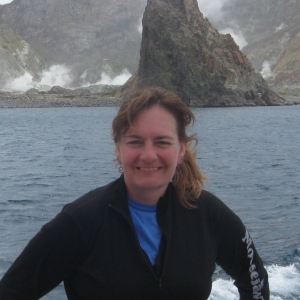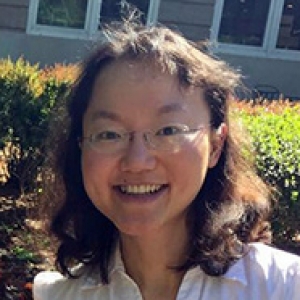What’s more important than understanding climate change? Getting others to do so.
That was a goal of Minerva 203, “Climate Change: Knowledge Empowers Action,” which teamed students from a range of disciplines to present final projects aimed at educating a broad audience.
“There are so many people who just don’t believe that climate change exists, that it’s real, that it’s caused by humans,” said Prof. Holli Frey of Geology, who taught the class with Prof. Doug Klein of Economics, and Prof. Jue "Joy" Wang of Mathematics. “We asked students to consider, ‘How can we, as educated Union College students, get that message out there?’”
The class took shape at the Faculty Development Institute last summer, when Frey was planning the syllabus. This year’s FDI, which helped faculty re-tool for face-to-face, on-line and hybrid classes, drew 90 Union faculty members and 66 others from New York Six schools.
The FDI also fostered the collaboration with Wang, who added mathematical modeling, data analysis and visualization. “I enjoy very much teaching with Holli and Doug and I have learned a great deal from them,” Wang said. “This has been such a positive and inspirational experience for me.”
Frey previously taught with Klein and other faculty in a similar model: an Adirondack mini-term in which multidisciplinary student teams explored tourism, the hardships and benefits of Adirondack life, and the meaning of wilderness.
The FDI also introduced the idea of involving alumni. With no shortage of alumni in careers in environmental science, policy and business, Frey said the instructors decided to invite newer alumni. “We thought students should hear from alumni who are relatable, just a few years out of Union and doing amazing things.”
Guest lecturers were Jonathan Griffith ’11, an environmental scientist at University of Colorado, Boulder; Sara Miltenberger ’15, a corporate sustainability consultant and podcaster; and Maya Whalen-Kipp ’16, director of impact teams for Common Energy, a firm promoting community solar.
With the goal of reaching a broad spectrum of students, the course was cross-listed to give credit in social sciences, science and math. Majors included biochemistry, chemistry, computer science, economics, engineering, environmental science, geology, philosophy, political science and psychology. Said Wang: “I am impressed by their insightful conversations, depth of thinking, and passion and enthusiasm for addressing climate change.”
Bethany Costello ’22 has long been working her way toward a career in renewable energy. She took a term in New Zealand where she studied wind power and an internship with a renewable energy firm. On campus, she is active in U-Sustain and Ozone House.
“I’ve known since freshman year that I was going to go into sustainability in some form,” said the mechanical engineering major from Londonderry, N.H. “My major is coming together with my passions for the first time.”
Bill Pieroni ’22, an economics major from Chappaqua, N.Y., said he found value in the broad approach to climate science. “I believe that the inclusion of multiple perspectives, including faculty, alumni, and climate entrepreneurs and activists deeply enriched my understanding and perspective. It enabled students to fully appreciate the subtle differences between stakeholders in a classroom setting.”
Minerva 203 was one of a suite of interdisciplinary on-line courses designed to help students develop solutions to difficult and complex societal issues. Other Minervas addressed racial justice and artificial intelligence.
Said Frey: “We want students to have a voice. Union is not just about learning stuff in the classroom and doing exams. We think we’re successful if students, when they leave Union, can convince someone that climate change is something they really need to be concerned about.”


